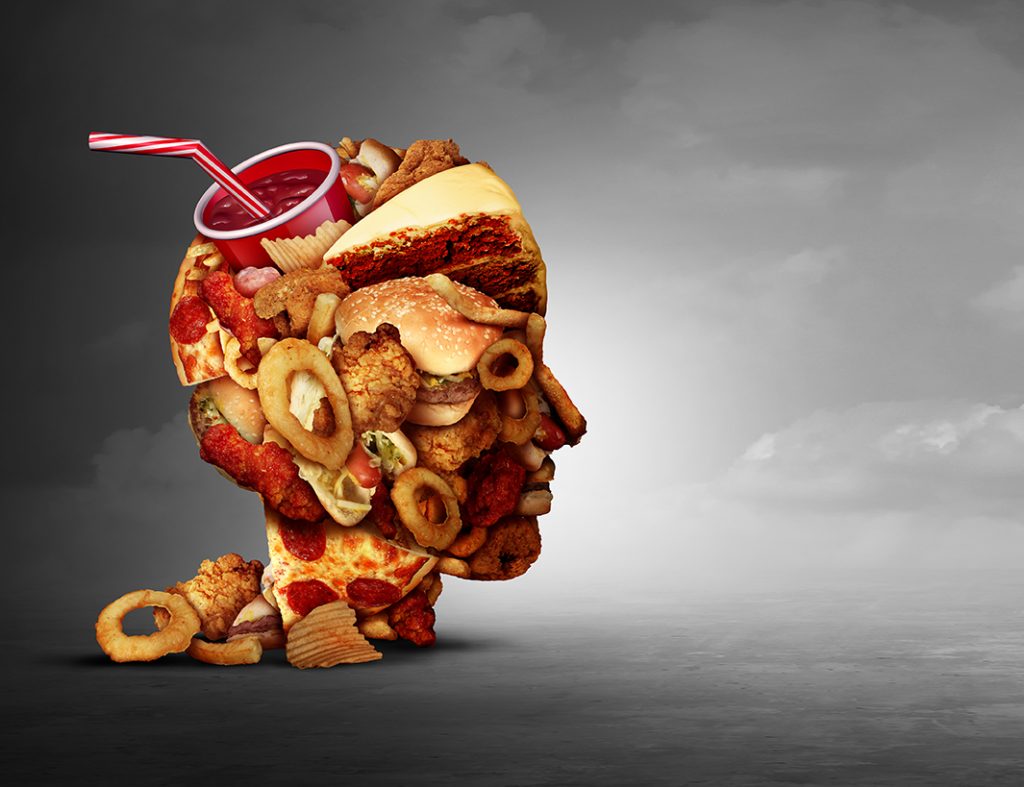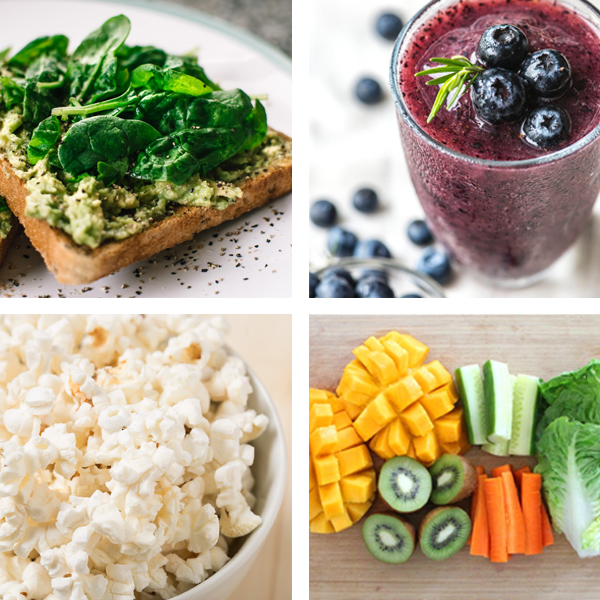For many, negative feelings, such as anxiety and depression, lead to out-of-control eating…and ensuing weight gain. Knowing which foods can bust the blues, without weight gain, could reduce the odds of emotional eating episodes. Meet the foods that may help.
Mac and cheese. Chocolate chip cookies. A pint of Ben and Jerry’s. Some call it “comfort food”; others say it’s “food as friend.” However you phrase it, turning to food to soothe unpleasant feelings—from depression and anxiety to anger, loneliness, even fatigue—is the key cause of Emotional Eating. As a matter of fact, our research revealed that eating to cope with negative feelings is the #1 reason we overeat; and the key cause of weight gain.

Theories abound about the causes of out-of-control eating. Is it linked to brain chemistry? Or is it a behavioral addiction? Or both? What is clear is that when some people experience unwelcomed feelings such as fear, anger, anxiety, or depression— because of physical (such as back pain), emotional (negative feelings), mental (stress-filled thoughts), or spiritual (emptiness) distress, they may turn to food to feel better. Why? Because food does, indeed, have the power to bust the blues! Here’s why.
Anatomy of Emotional Eating
Have you ever felt frustrated, and turned to carbohydrate-dense fries, cake, cookies, or potato chips—seemingly unable to stop until the whole bag (or bags) is gone? If so, it’s possible you’re self-medicating unpleasant feelings with food. How so? Certain hormones—naturally occurring “chemical messengers” released when you consume certain nutrients (such as carbohydrates, protein, fat, and so on) in food—have the power to “replace” negative emotions with feel-good feelings. This is because high-carb foods, such as chips, stimulate the production of serotonin, an emotion-friendly hormone that calms and soothes the psyche.
It seems so easy: load up on carbs, feel better. But you pay a price for this feel-good fix. This is because processed, sugar- and fat-laden junk food—from donuts, cookies, and cake, to chips, fries, candy bars, and soda—ultimately, are “downer” foods. This means these often tasty, high-carb foods may provide some short-term comfort by releasing soothing serotonin, but you won’t get long-term relief. Rather, sugar-laden comfort foods could worsen negative feelings, because after they drive up insulin (a hormone that controls blood sugar and energy absorption), your blood-sugar levels inevitably plummet, leaving you even more depressed and fatigued then prior to eating them.
Damage Control: Calming Carbs Without the Crash
If you’re an emotional eater—if you cope with unpleasant emotions by overeating and bingeing on high-carb, super-sweet foods—there are many proactive steps you can take to turn the tide. For starters, consider consuming some blues-busting foods that bring the benefits of serotonin—without the downside of the emotional “crash” and the weight gain that bingeing on processed, high-calorie, “downer” food (products) can cause.
Here are some quick-fix, mood-friendly foods and snacks that not only may bust the blues, they may crush cravings and curb your urge to splurge.
FLASH TIP: BE SURE TO WAIT AT LEAST 20 MINUTES AFTER YOU EAT TO GET THE CALMING AFFECTS OF SEROTONIN. THIS IS HOW LONG IT TAKES FOR YOUR BRAIN TO REGISTER THAT SEROTONIN IS WORKING ITS WONDERS.

Smoothie. Combine 2 cups chopped dark leafy greens, 1 cup blueberries, 3 walnut halves, 1 cup milk of choice (cow, soy, almond, rice), ½ cup juice of choice, 3 walnut halves, 1 teaspoon flax oil. Blend.
Avocado spread. Toast a piece of multi-grain bread or choose whole-grain rice crackers. Mash ½ avocado, add salt and pepper to taste. Spread the avocado on the bread. Or a tablespoon of nut butter (peanut, tahini, etc.) on it.
Popcorn. Pop some air-popped popcorn. Spritz lightly with olive oil. Sprinkle with a dash of salt and pepper. Toss.
Cereal. Enjoy a bowl of cracked oatmeal with a handful of blueberries and milk of choice.
Nuts/Seeds. Try a ¼ cup of raw, unroasted nuts or seeds of choice. A sampling: walnuts, cashews, almonds, pumpkin or sunflower seeds.
Veggies. Munch some carrots, celery, cherry tomatoes; crunch kale or Romaine lettuce leaves. Optional: Use the nut butter blend, above, as a dip or spread for your veggies.
Fish. Enjoy a tuna or salmon salad. Mix together water-packed tuna fish, 2 tablespoons mayonnaise, diced celery and red onion, juice from ½ lemon, salt and pepper.
Fruit. Have an apple, papaya, orange, frozen grapes, banana, kiwi, cherries, pineapple pieces, tangerine, or any other fruit you like.
Chocolate. Savor a piece or two of dark chocolate with 70% or higher cocoa content. Or make hot chocolate with 100% cocoa powder and milk of choice.
The take-away: Enhancing emotions by consuming fresh, whole, blues-busting foods—instead of processed foods that are high in sugar, fat, and calories—is a sound step toward overcoming Emotional Eating, the #1 overeating style our research on Whole Person Integrative Eating has revealed.
In other words, if you turn to food that enhances feel-good feelings, but that also nourishes your mind and body—without the “downer” crash—you’re more likely to lower your odds of Emotional Eating episodes. How so? You’ll keep your mind-body in balance.
Visit Deborah’s website, makeweightlosslast.com, for free evidence-based, credible information and education about optimal eating for weight loss and well-being. You can also visit her blog, integrativeeating.com.
Originally printed on integrativeeating.com. Reprinted with permission from Deborah Kesten.
Deborah Kesten, M.P.H., is an award-winning author, specializing in preventing and reversing obesity and heart disease. Her expertise includes the influence of epigenetics and diet on health, Lifestyle Medicine, and research on the Whole Person Integrative Eating dietary lifestyle to treat overeating, overweight, and obesity. She and her husband, behavioral scientist Larry Scherwitz, Ph.D., collaborate on research and writing projects.

